Element Partners Ed Guiney & Andrew Lowe On The Audacity Of Yorgos Lanthimos’ ‘Poor Things’
- Oops!Something went wrong.Please try again later.
- Oops!Something went wrong.Please try again later.
- Oops!Something went wrong.Please try again later.
- Oops!Something went wrong.Please try again later.
- Oops!Something went wrong.Please try again later.
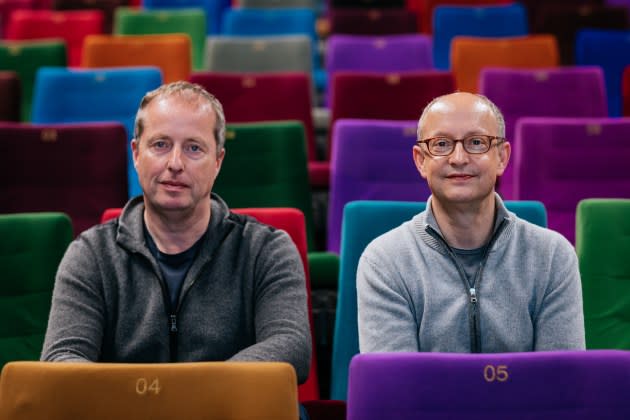
EXCLUSIVE: Most of the serious candidates for Oscar Best Picture and other major awards are known quantities, but if you are looking for a dark horse comp for Everything Everywhere All at Once, get ready for Poor Things. A Golden Lion winner at Venice and buzz title at Telluride, New York and Busan, Poor Things has been a relative secret, because the strike prevented its cast from promoting it.
That changes Friday, as Searchlight launches in limited theaters before a wide berth December 22.
More from Deadline
Yorgos Lanthimos’ follow-up to The Favourite stars Emma Stone as Bella, who starts as a childlike waif who pads around a mansion with limited vocabulary and developmental skills under the watchful eye of her heavily scarred father (Willem Dafoe). It takes time for the viewer to feel grounded in this revisionist but highly original take on the Frankenstein story. Once a caddish lothario (Mark Ruffalo) takes Bella to see the world — she comes of age in a brothel of all things — the fantastical magic begins. It is the mad vision of a confident, mature filmmaker, fully realized with brave performances.
Element Pictures’ Ed Guiney and Andrew Lowe — who produced the film with Lanthimos and Stone –traveled this dark horse path before with Lanthimos, on the awards contenders The Favourite, The Killing of a Sacred Deer and The Lobster, and with director Lenny Abrahamson on Room, the searing drama that won the Best Actress Oscar for Brie Larson.
Here, the Dublin-based duo, whose Element Pictures owns and operates movie theaters in Dublin and Galway and also distributes film and TV through its Volta banner, discuss how at a time of strikes and risk aversion, a film like Poor Things managed to sneak it way into existence with a $35 million budget and explosion of imagination. Element might have had to scrape in those early years, but it is easier now after being acquired by Fremantle.
DEADLINE: How did this fever dream of a movie happen?
ED GUINEY: I remember Yorgos mentioning it here in London, probably 2016, before we made The Favourite, and after The Lobster. He’d already met Alasdair Gray [who authored the novel scripted by Tony McNamara]. The book is one strand of what is in the film, but there are other perspectives…
ANDREW LOWE: This goes into the thing about nationalism and there’s various other things. One of the decisions was to very much focus on Bella Baxter, and make her the character that drives the narrative. Fundamentally it’s the same story, but there’s perspective from more characters and there’s a whole philosophical thing at the end, and stuff about Scottish nationalism.
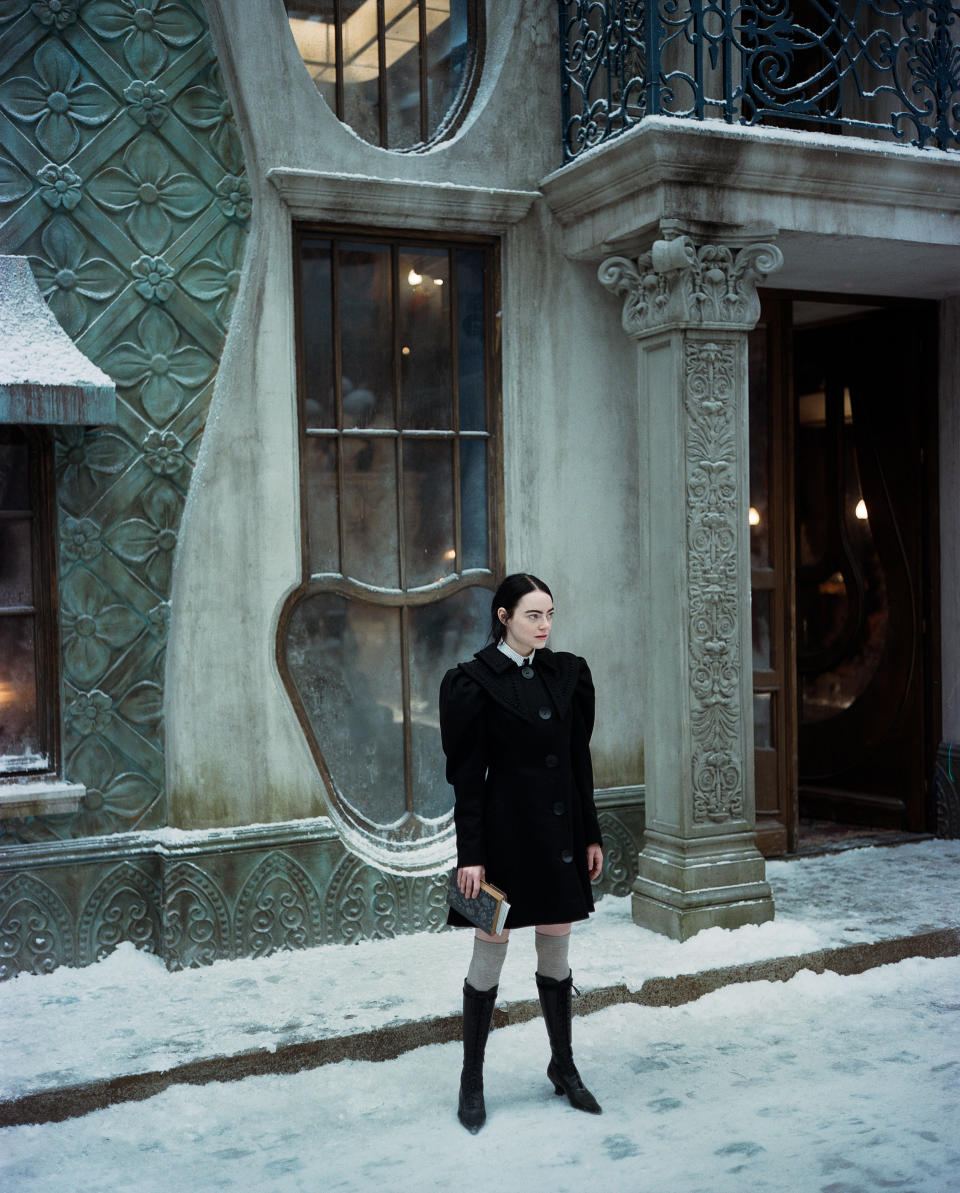
DEADLINE: It is a tough one to logline. How does he pitch it to you?
LOWE: He doesn’t, not really. Take a look at this. I love it. I want to do it. And to be honest, at that point, we’d done The Lobster and we were building The Favourite together. So we were all in. That’s the way we work with filmmakers and in particular Yorgos and Lenny Abrahamson, our longest-standing filmmaker relationships. If those guys want to do something, you get behind it. Even though at that point, it seemed like a very baroque and challenging thing to get done, on the face of it. It just became one foot in front of the other. You’re like, okay, we’re in business with this guy. This book is amazing. Let’s figure it out.
GUINEY: We optioned it in 2016, and then Yorgos’ process is very organic. By way of example, the first project we actually set out to do with him was The Favourite. It had a different title at the time, and it took a couple of years to develop. So he pitched his idea for The Lobster, and we commissioned that. Then while we waited for scheduling issues of Olivia Colman an Emma Stone to clear, he pitched The Killing of a Sacred Deer. Then during production of The Favourite, Yorgos and Emma started talking about it.
LOWE: And then Tony wrote the script and in the glow of The Favourite, all of a sudden this became possible. And then the pandemic intervened.
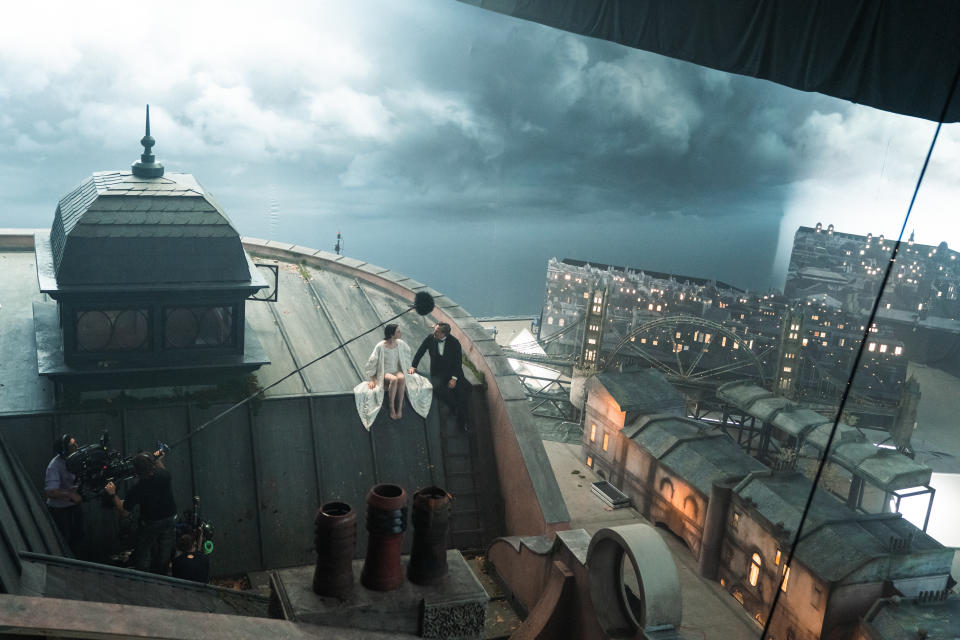
DEADLINE: There is world creation here worthy of Terry Gilliam and Tim Burton. How much of that was accomplished in the solace of the pandemic?
LOWE: We had a very long pre-concept and Tony’s script, and you look at that and go, well, how can you do it? And one thought you might have originally is go to whatever European city, try and find a bit of Portugal or some other cities. Also, Yorgos was thinking back to the old Frankenstein movies, those old movies, very kind of atmospheric.
GUINEY: You have one kind of dark column and then a painted backdrop. He was interested in that, but he’d never shot on a set before, really never used lights really before. It sort of became a thing that actually we would have to try and do it on stages, basically. And it just grew from there. And James and Shona Heath, who were the two production designers, she’s in background working with the photographer, Tim Walker, and she does does commercial work, but that work is really fine and useful and quite baroque and Yorgos liked that. And then we added James Price, who we had worked with on Sean Durkin’s film The Nest. Fantastic production designer. They spent six to nine months honing the concept during the pandemic.
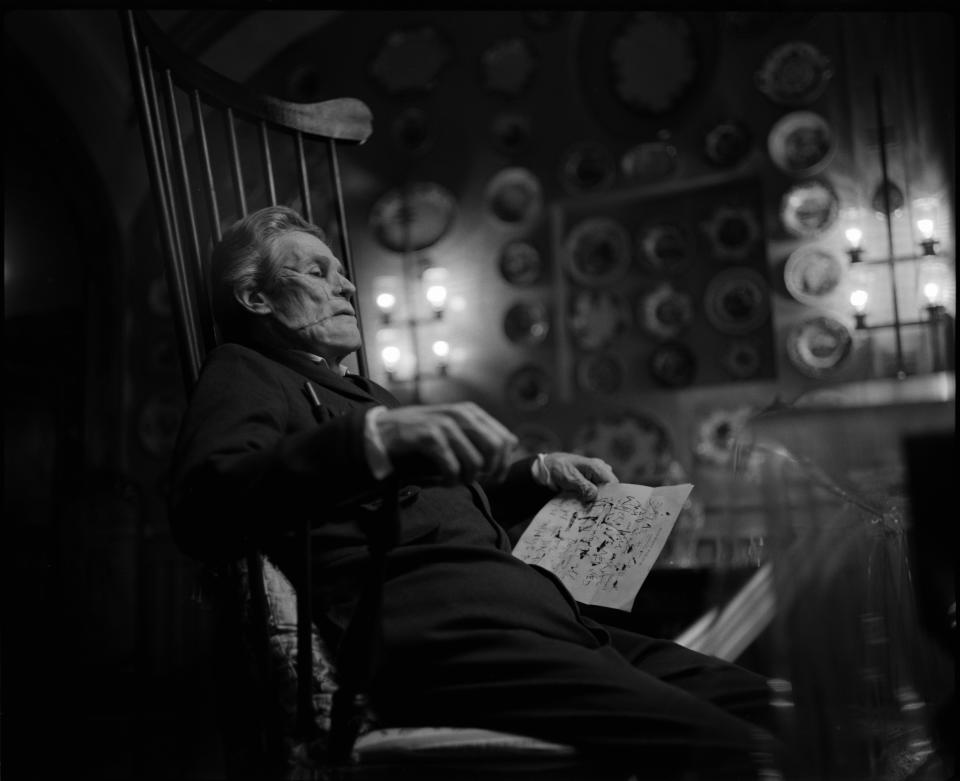
DEADLINE: There is a reveal about Emma’s character that is a little upsetting, and there is fairly explicit sex. What were the challenges in getting Poor Things financed?
GUINEY: There was already a kind of real warmth in the relationship with Searchlight because of The Favourite, and Film4, a constant backer of Yorgos and all the stuff we do. We got a number we had to work with, and it probably cost a bit more than that. Budapest came out as the best option.

DEADLINE: Emma Stone’s performance in Poor Things is exceptionally brave. I cannot remember the last time a star of her stature bared herself onscreen as she does. It’s in service of a strong story, but what are those conversations like, in deciding how far the film needs her to go, and how far she is willing to go?
GUINEY: There were very direct conversations between herself and Yorgos. The book suggested a particular kind of approach; they had been talking about it for some time before we shot it, figuring out how they would do it. And she was very much talking to him about the detail of scenes as a producer as well as an actor at that point. The decisions they made around those scenes came out of the two of them figuring it out and working together.
DEADLINE: Were you surprised at how far she was willing to go?
LOWE: Emma is an all-in person. She’s incredibly brave. Great actor, as we all know, but part of that is her bravery, her courageousness. I’m sure there might be a different version of that film, but given that the story is so much about her kind of emotional, sexual, intellectual awakening, how do you do that as well, in any other way? Yorgos always takes big swings in his work. In almost everything he does, he surprises you about how he approaches things. And we just try to make it as comfortable as possible. We hired intimacy coordinators, there are other actors who, besides Emma, also are in sex scenes. This was more of a challenge for Yorgos. But those scenes, everyone walks away from the set and you close the doors and work through the day. There’s a kind of an intimacy in that, and it’s very actor centric; you’re not stopping for half an hour to tweak a light over here and lose the run of it. We managed to do that again on these gargantuan sets for things.
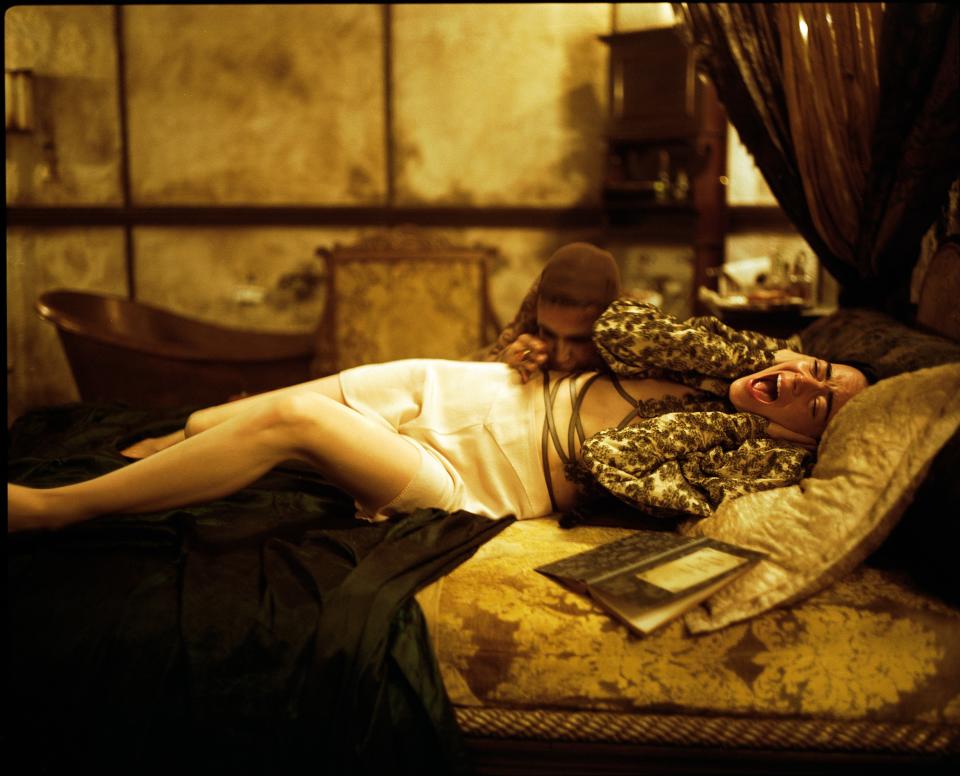
GUINEY: And before the pandemic ended.
DEADLINE: How much extra challenge did that add, actors in close contact when people are trying to avoid each other? Did you have Covid problems?
GUINEY: We did, because we had a massive construction crew. As we were shooting at one set, then you had people on new sets. In fact, one guy died of Covid, didn’t he?
LOWE: On the construction crew. There was a very strict testing regimen in place. When we first started in pre-production, Hungary was under lockdown, and made you quarantine.
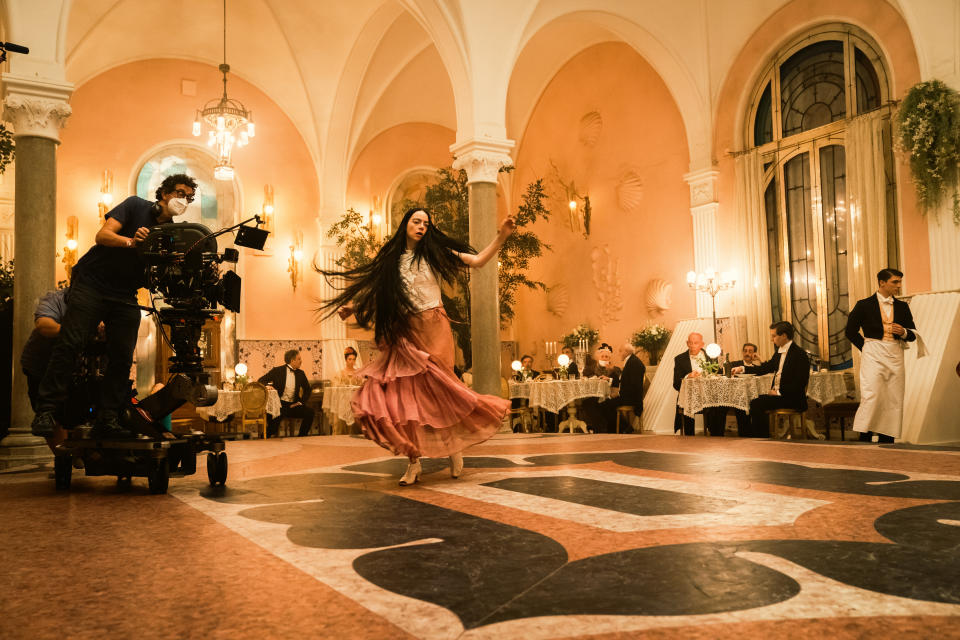
DEADLINE: Long road to premiering at Venice, and winning the Golden Lion. How much did you wonder if its audience be polarized by what they see in this fairy tale made for adults?
GUINEY: The thing we felt about the film was from the very first time we saw it was, we absolutely loved it. But I agree with you. You then go, what will audiences make of this? It’s a big swing, an expensive film. And we felt we came in with one arm behind our backs because we didn’t have Emma as Yoga’s closest collaborator on the film and the lead actor, as a producer who could be part of the conversation around the film. So we did have anxiety going into it. The good thing I found was they were incredibly warm and supportive about the film. It would be misleading to say that we weren’t going in with a lot of nerves and a lot of anxiety as to how it would land. It landed, from the first press screening.
DEADLINE: It is such an auteur’s fever dream, from the writing to a caddish character unlike anything Mark Ruffalo has ever played before. How does Lanthimos keep his participants from getting lost?
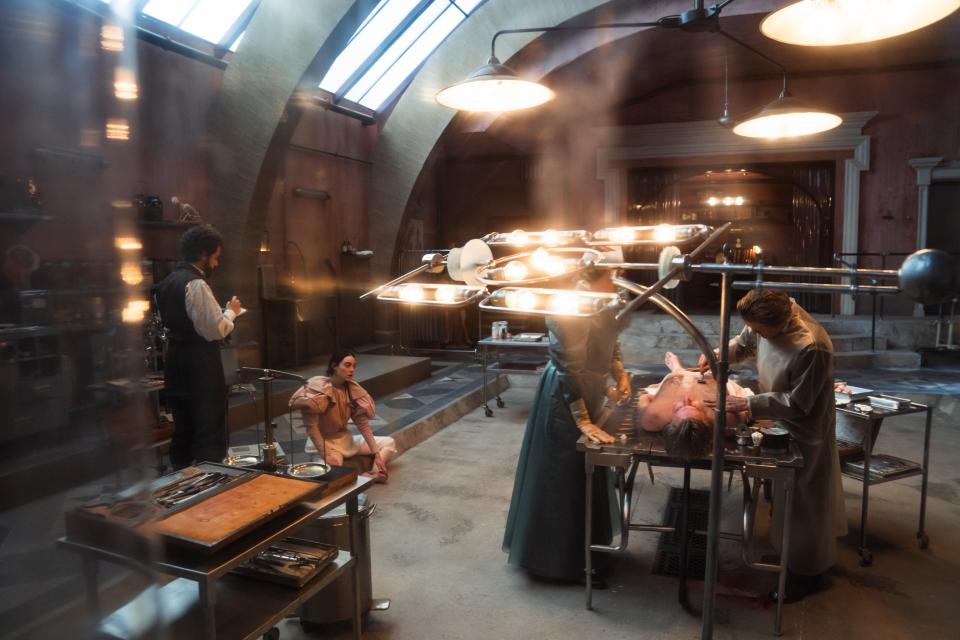
LOWE: What he’s very good at, Tony Mack, somewhere in the writing process of Poor Things, he phoned him and went, I don’t think I can do it. I am stuck. I dunno where to go, basically. Yorgos said, just keep writing, get to the end. It’ll all be fine. This was just giving people confidence to be courageous and take big swings and to be bold. Despite the challenges of Covid, it was a very, and despite the scale of it all, in the core of it, it was difficult and challenging, but it was a very kind of positive experience for everyone involved. I mean, sometimes you look back on films and you go, oh my God, that was a nightmare to make that film.
GUINEY: It was challenging, but one of the most positive experiences we’ve had, and not just because of the outcome, but things like the joy of seeing Mark do what he did. That Charlie Chaplin meets Peter Sellers, I don’t know what the hell that was.
DEADLINE: What went into him finding that character?
LOWE: Yorgos has this three week period before the film starts where all of the actors will join us. The main ones are there most of the time. And then other people will come in and the rehearsal space is, it’s a kind of, they basically play games. They’re kind of theater games. They’re games that Yorgos makes up.

DEADLINE: Example?
LOWE: Being an animal saying the lines rolling across the ground. I sat in a couple of these in Budapest, and I think the actors find it incredibly freeing, very disinhibiting. And I think the whole point of it is that you do such silly things that you’re kind of free basically, and you do them with your collaborators and you see each other’s kind of extremes if you like. It comes down to kind of an actor having an instinct about a performance, they’re very much encouraged to go with that instinct. His thing is, look, if I made the choice with the right actor, then they will come up with something amazing and let them do that thing. What’s my motivation? How am I supposed to be? These are not conversations he wants to have.
DEADLINE: Sounds like the opposite of method acting…
GUINEY: It is. And I think some actors find it disconcerting, but there is a real community that comes out of it. So when Ruffalo walks in with those ideas, that’s what he did and it was great.
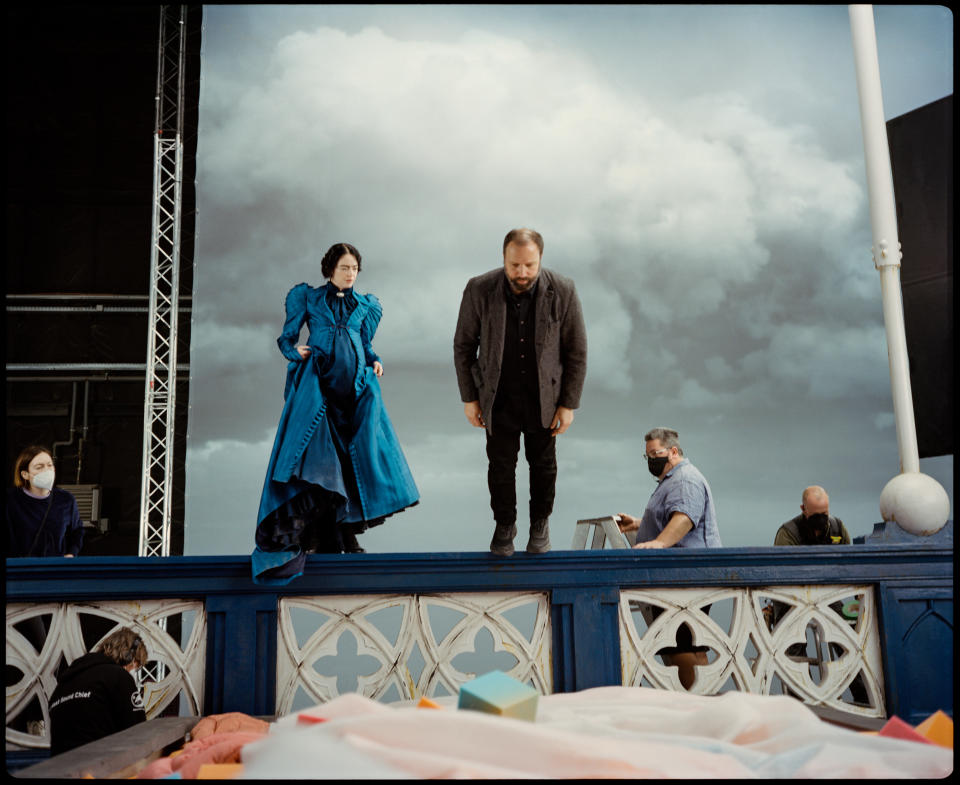
DEADLINE: Maybe outdone in outrageousness only by Willem Dafoe, playing this disfigured Dr. Godwin Baxter, the Frankenstein figure you never lose sympathy for.
GUINEY: He does do monstrous things, but you’re quite right. There is such pathos in Willem’s performance, vulnerability because of what his story of abuse is. You feel like it’s whatever comes out of that eighties free spirited New York art scene and was hanging out with Robert Mapplethorpe. That’s what I imagine. He’s a real artist.
DEADLINE: Knowing you had a risky execution dependent film coming, how comforting was it to see the outside-the-box Everything Everywhere All at Once win Best Picture?
LOWE: I don’t think we looked at it that way. You’re finishing your film, dealing with all the problems. There’s a lot of creativity in it, but it’s like you get past one problem, onto the next. We’ve never finished one and thought, oh, this is going to be a hit. This is going to be great. You’re just like, okay, we’ve done it. Let’s see what the world thinks.
DEADLINE: Audiences have been through so much. The pandemic, polarized politics, Donald Trump and repressionism. Derivative superhero movies seem to be past their sell-by date. Is Poor Things and some other movies that are aggressively showing nudity and bold ideas, a reaction by filmmakers the way the ‘70s films were reactions to mistrust of government over Vietnam?
GUINEY: I think you’re right. You had Fellini making big-budget films back in the day alongside Coppola and Scorsese. My theory, and I might be full of sh*t, but I think in a weird way, what then happened is television got so good, movies weren’t as good. I think television has slightly flattened out a bit now. Economics aside, I think it’s less fresh. And because I think audiences were staying at home to watch TV, they weren’t going to the cinema. So I think there’s arguably a dynamic where for those of us who work in the movies, it’s like we need to get those people back to us.
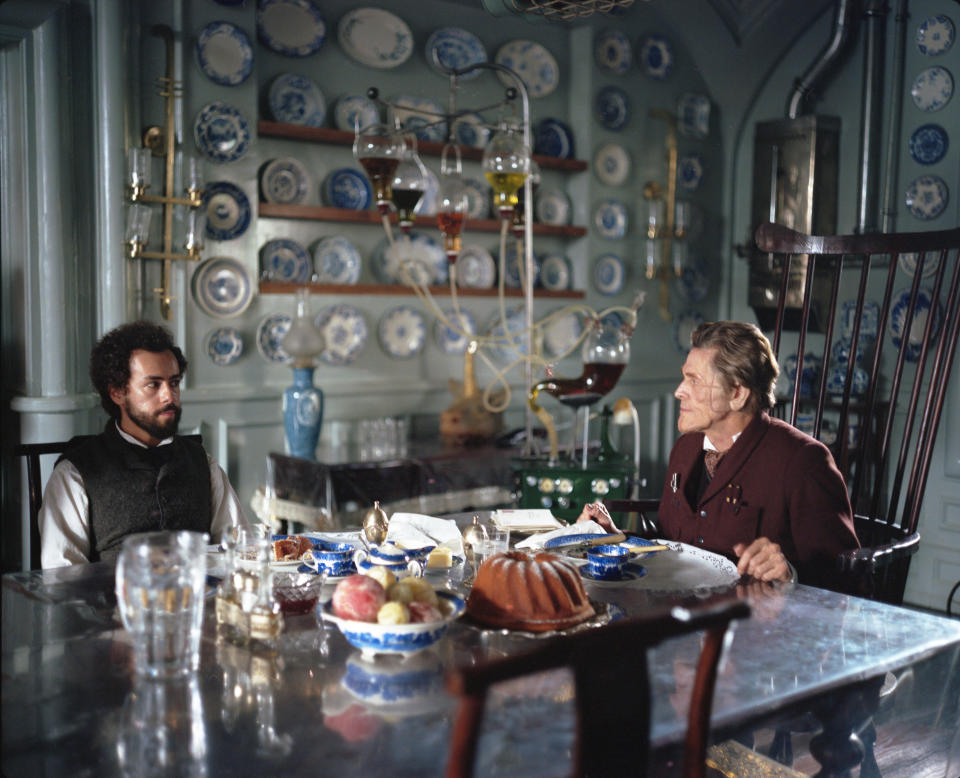
LOWE: It’s true. And I think filmmakers feel it. We’ve maybe peaked in Marvel and Star Wars. They’re not my movies, but I understand that lots of people love those films. The Barbenheimer thing was interesting. Barbie is IP, but a completely new piece of IP, and Oppenheimer is Oppenheimer. I think there’s something kind of in the water where we may begin to, I hope we’re going to enter a new era. Joker is another one and so is Parasite. We’re looking at maybe a new groundswell of filmmaking, for the cinema, because the habit of going to the cinema has been lost. You’ve got to have something really good to give a good reason to go to the cinema. Poor Things is really made to be seen in the cinema. It’s not that it can’t be seen anywhere else, but that’s where you’ll have your best time with that film.
GUINEY: There’s a shard of light post-Barbenheimer, where the industry is giving people a reason to come back. That doesn’t mean they’ll go every Friday night like they used to in the past, but it may mean that they’ll go, God, that sounds crazy, I need to see that. It’s beholden on us as an industry to give people a reason to come back. We can’t throw our eyes up to heaven and go, oh, the youth of the day, they don’t understand. We have to bring them back.
LOWE: We also have a dual perspective. We’ve got two cinemas in Ireland, one in Dublin, one in Galway. The Barbenheimer weekend was our best since we opened. By 50%, and that goes to Ed’s point. The audience is there, you just have to give them what they want.
Best of Deadline
2023 Premiere Dates For New & Returning Series On Broadcast, Cable & Streaming
2023-24 Awards Season Calendar - Dates For Oscars, Emmys, Grammys, Tonys, Guilds & More
Colman Domingo To Receive Palm Springs Film Festival's Spotlight Award, Actor
Sign up for Deadline's Newsletter. For the latest news, follow us on Facebook, Twitter, and Instagram.

